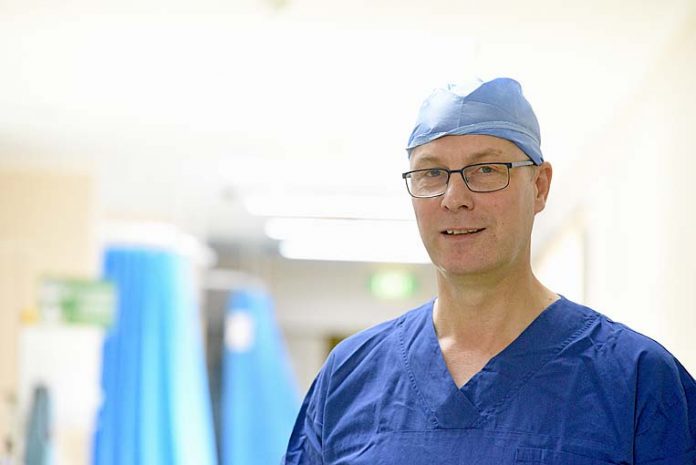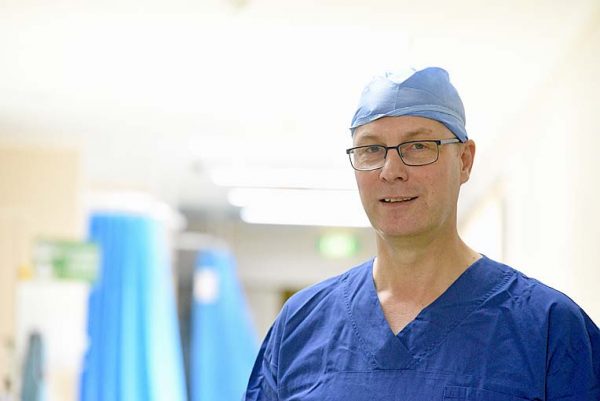

Picture: SANDRA MORELLO
A PROMINENT Mount Gambier resident surgeon has called for a hospice to be established in the city to provide in-patient palliative care services.
In a heartfelt address to a health forum in Mount Gambier on Tuesday night, Associate Professor Matthias Wichmann vowed to continue to push for a hospice for the city.
“I would be passionate about moving forward from here – there is an absolute need in Mount Gambier,” Mr Wichmann told the 50-plus crowd at the Main Corner.
The forum was hosted by the Mount Gambier Hospital Health Advisory Council (HAC).
A highly regarded bowel surgeon and recognised around the world for his leading research, Mr Wichmann said he witnessed patients who needed access to hospice services.
“You can never make a business plan for a hospice, but you certainly make a community plan,” the surgeon said.
He said the community needed to come together to share ideas to secure a hospice development.
“I do think we need it in Mount Gambier. We have a growing and ageing population – not everybody can die at home,” Mr Wichmann explained.
“I do feel passionate about it and I do feel we can get community support and the community behind it.”
He foreshadowed the facility could have up to six in-patient beds, preferably close to the hospital.
Mr Wichmann said the average length of stay would be ‘”far less than three months”.
He suggested the facility could be financially supported by the government, private organisations and community fund-raising.
Conceding there would need to be a “long paper trail” before the facility got off the ground, he said it was important the community pushed for the facility.
“If we do not open the door for this, we will never get it. We have to run with it and look for examples of how it can be done,” Mr Wichmann said.
He said aged care and retirement home providers had shown interest in the concept.
HAC presiding member Maureen Klintberg said the need for a hospice had been raised a number of times from community members.
“This is an issue that goes way back when I was involved in 2003,” Ms Klintberg said.
“John Deer, a chaplain at the time at the hospital, was lobbying for a hospice in Mount Gambier.
“We have never had a group come together to explore how a hospice could be operated or funded.
“I see a real need, people in the community see a need.”
Health Minister Stephen Wade – who was a quest speaker at the forum – responded to the issue by saying the palliative care services were restored a number of years ago and there was a need for inpatient care.
“There is a need for hospices and it is important to see it not just as a place where you go during your final days, but a respite facility,” Mr Wade said.
He said the hospice could be a place where people could go for a few days until they could be medically stabilised to go home.
“Seventy percent of Australians prefer to die at home, but often an in-patient or hospice-based service can give them the opportunity to get the support they need so that a death at home is sustainable,” Mr Wade said.
“A lot of people die at home, but with pain management and medical issues that emerge, they feel they need to give their family a break.
“A hospice can be both for the terminal phase, but also a useful service along the way.”







